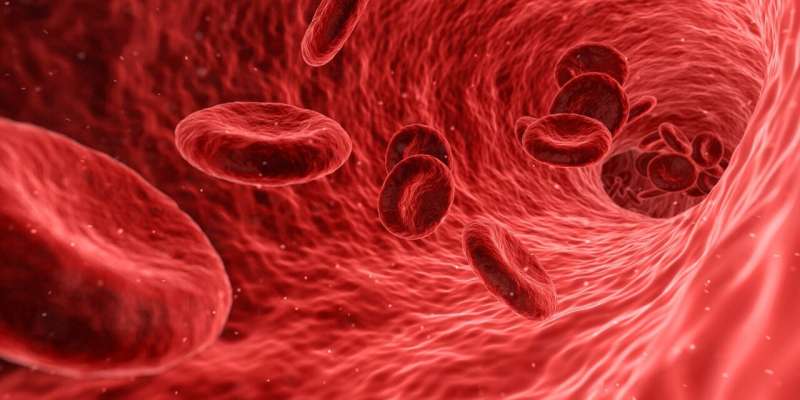VAV1 gene mutations trigger T-cell tumors in mice

Life is an exquisite orchestration of growth and change, with checks and balances that fine-tune complex entwined interactions, both intrinsic and external. White blood cells (WBC) are integral to an organism's immune defenses against disease and invasion; unfortunately, these mechanisms may go awry causing uncontrolled increases in dysfunctional cell numbers, resulting in tumor formation. Now, researchers at the University of Tsukuba have illustrated how mutations in a specific gene called VAV1 may promote tumors involving a type of white blood cell, the T-cell, in experimental mice.
Leukocytes, or WBC, are fundamental to the body's immune function. They include B-lymphocytes that generate antibodies, as well as thymic-lymphocytes or T-cells with diverse immune-related functions, so called because they develop in the thymus gland. T-cell neoplasms include a mature subtype called peripheral T-cell lymphoma. Studies have shown that VAV1, a gene that participates in T-cell receptor signaling, is altered in several peripheral T-cell lymphoma variants; therefore, the research team sought to elucidate the role of VAV1 mutants in the malignant transformation of T-cells in vivo.
The tumor suppressor gene p53 is called guardian of the genome because it prevents genome mutation. The researchers replicated VAV1 mutations found in human T-cell tumors in both normal ("wild-type") mice and mice lacking p53. Lead author Kota Fukumoto describes their findings: "No tumors developed in the wild-type mice with VAV1 mutations over a year of observation; whereas immature tumors developed in mice that lacked p53. Remarkably, mice that both lacked p53 and had mutations in VAV1 developed mature tumors resembling human peripheral T-cell lymphoma, and had poorer prognosis than the mice lacking p53 only."
The team also transplanted tumor cells into mice that lacked a functional thymus. The results suggested that tumor initiation was likely due to mechanisms within the cell itself. "We noted that T-cell tumors with VAV1 mutation showed Myc pathway enrichment, as well as somatic copy number alterations (SCNAs), including at the Myc locus," explains Professor Shigeru Chiba, senior author. Significantly, Myc, a family of regulator genes and proto-oncogenes, and SCNAs, which cause discrepancies in DNA copies, are both distinct hallmarks of tumor formation.
"Interestingly, pharmaceutical inhibition of the Myc pathway increased overall survival of mice harboring VAV1-mutant tumors," Professor Chiba adds. "Therefore, our methodology and results suggest that the VAV1-mutant expressing mice developed in this study could be a research tool for evaluating therapeutic agents directed against specific T-cell neoplasms."
More information: Kota Fukumoto et al. VAV1 mutations contribute to development of T-cell neoplasms in mice, Blood (2020). DOI: 10.1182/blood.2020006513




















